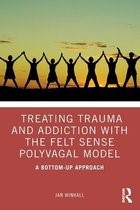Jan Winhall

I started my career as a social worker/psychotherapist 40 years ago. I listened with non-pathologizing ears and heard shocking stories of sexual torture, and responses that confused me.
Women were cutting themselves, burning their bodies, sucking on bars of soap, having compulsive sex with strangers, bingeing and purging huge quantities of food, and abusing drugs and alcohol. As I listened I learned that somehow these self-harming behaviors were “helping” them to escape intolerable emotional states. They were shifting their mood from flooding anxiety to numbing deadness, or vice versa.
Because these behaviors were so helpful they were compulsively repeated and often became addictions.
Addiction is eating us up. While it used to lick around the edges, it is now flourishing in the belly of our culture. And it’s on the rise in most countries. What does that mean? What are we showing ourselves in such painful and damaging ways?
These questions and more need so desperately to be addressed. While the language that we use to speak about addiction can sound hyperbolic, the destruction speaks for itself. Every day, people are dying on the streets from fentanyl overdoses in greater numbers than ever before. As clinicians we find ourselves encountering clients struggling with compulsive, self-harming, addictive behaviors in increasing numbers, and yet, we don’t always feel competent to help.
Traditional ways of understanding and treating the problem are not particularly effective. Many people find it hard to even truly comprehend someone continuing to damage themselves and those around them, when all the facts point to the need to stop.
We search for ways to appeal to the addicted person… mostly through cognitive means, yet the results show that, at least at this point, we are fighting a losing battle.
Paradigm Shifting
My book Treating Addiction with The Felt Sense Polyvagal Model: A Bottom Up Approach is the result of rethinking the Felt Sense Experience Model that I wrote about in Emerging Practice in Focusing-Oriented Psychotherapy, 2014. I have integrated the Polyvagal lens Theory to create a more sophisticated way of understanding emotional regulation, where addictive behaviour is an embodied response to emotional dysregulation.
We have forgotten that we live in our bodies.
Een nieuwe kijk op trauma en verslaving
 Registratiewebsite voor Een nieuwe kijk op trauma en verslaving
Registratiewebsite voor Een nieuwe kijk op trauma en verslavingEen nieuwe kijk op trauma en verslavinginfo@vpep.nl
Een nieuwe kijk op trauma en verslavinginfo@vpep.nlhttps://www.aanmelder.nl/trauma-en-verslaving
2023-06-13
2023-06-13
OnlineEventAttendanceMode
EventScheduled
Een nieuwe kijk op trauma en verslavingEen nieuwe kijk op trauma en verslaving0.00EUROnlineOnly2019-01-01T00:00:00Z
Nog niet bekendNog niet bekend
